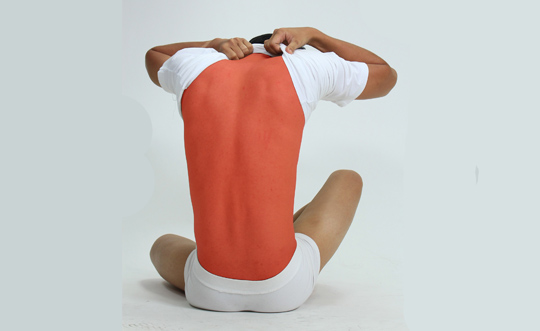Psoriasis is often dismissed as only a skin disease—forgetting its adverse effects to a person’s physical and mental health.
An incurable autoimmune disorder that causes scaly red skin lesions on the body, psoriasis affects two to three percent, or around 125 million cases, of the global population. In the Philippines, an estimate of two million people have been diagnosed with psoriasis, data from Psoriasis Philippines showed.
On top of having to deal with the physical discomfort of the disease, patients are also highly prone to psychosocial and mental health disorders due to the stigma that comes with having psoriasis. As flawless skin is often considered the societal norm, those misinformed of psoriasis’ effects are likely repulsed by skin lesions and may even assume it is contagious.
It is not uncommon for psoriasis patients to isolate themselves from their peers for fear of discrimination. According to the World Health Organization’s Global Report on Psoriasis, published in 2016, society’s reaction to the disease is what largely causes social exclusion, discrimination, and stigma among psoriasis patients.
To address this stigma, the WHO, in the same report, recommended a new global strategy on people-centered health services; one that highlighted the importance of consciously adopting the perspectives of individuals, families, and communities—making them not only beneficiaries of the services but also participants in other people’s care.
Despite the condition being fairly rare in the Philippines, those struggling can opt to seek refuge among fellow patients. At Psoriasis Philippines, psoriasis patients are able to rally together for support and treatment aid, as well as feel like they are part of a community. According to the group’s website, they are currently one-to-two million members strong nationwide.
With no permanent cure to its symptoms, a psoriasis diagnosis leaves a devastating impact. Nevertheless, patients can still live long and fruitful lives once they eventually learn to accept their condition.
Certain remedies such as topical therapies and ointments, phototherapy, biologics, and medicinal tablets can effectively help curb the condition.
Depending on the extent and severity of the condition, patients should consult a certified medical practitioner for immediate treatment.
Committed to provide afflicted individuals with the proper care they deserve, Johnson & Johnson Philippines has developed several kinds of psoriasis medication treatments made readily available across the country.
Currently, Johnson & Johnson is working with professional organizations to help standardize the management of psoriasis in the country. This initiative will assist doctors in their diagnosis while providing appropriate treatment advice depending on the harshness of the symptoms.
“Our goal is to help institutionalize psoriasis as a public health program. While it may not be a devastating condition like cancer, the disease severely debilitates its patients from pursuing physical and social activities,” said Dr. Erwin Benedicto, senior manager for scientific affairs and medical compliance of Johnson & Johnson (Philippines), Inc.
He continued, “If we can establish psoriasis an important public health concern, then more people diagnosed with psoriasis can muster up the courage to seek treatment and become functional members of society again.”

